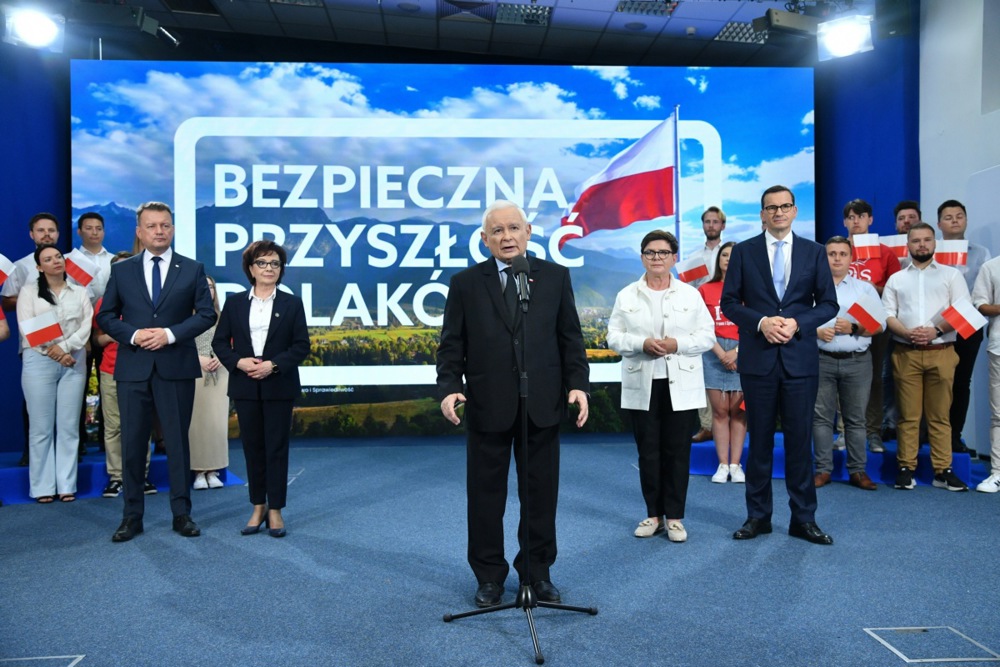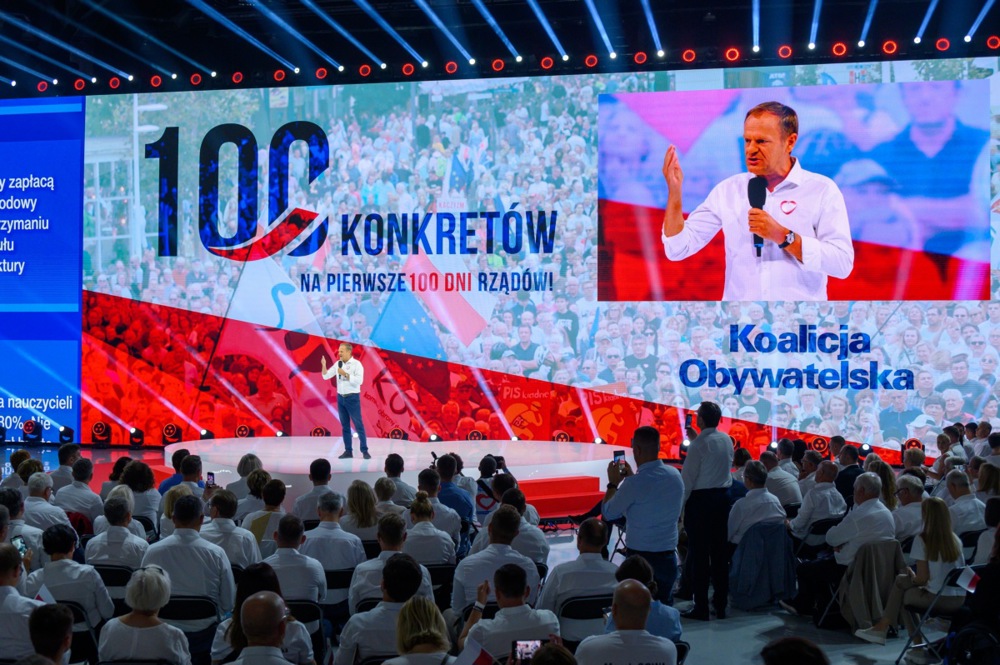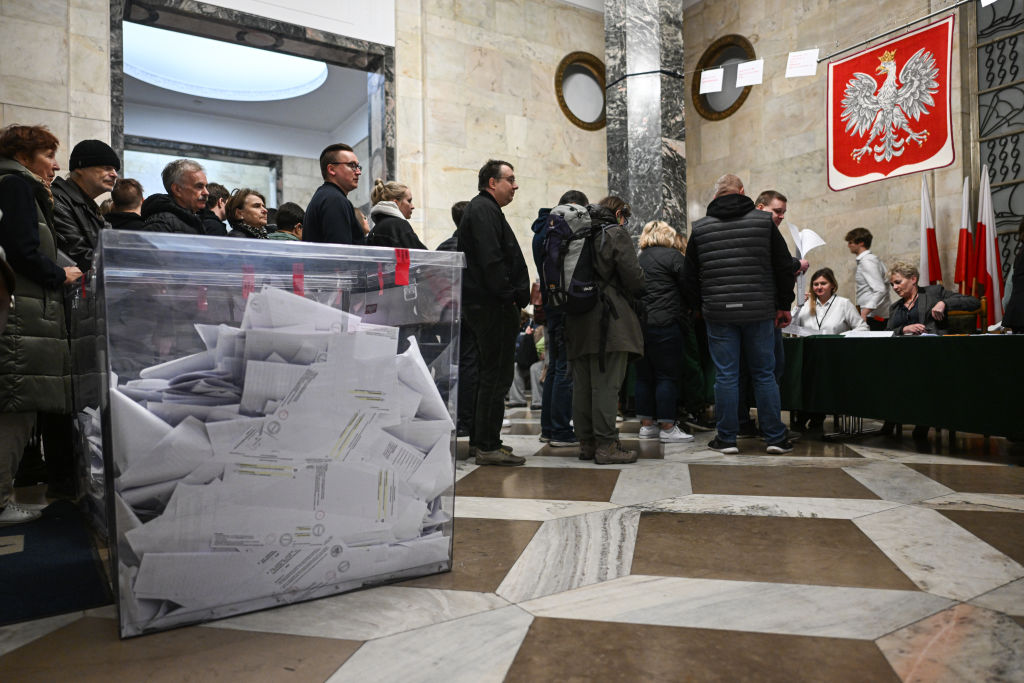Dmitry Medvedev, the former president of Russia and deputy chairman of Russia’s security council, last week released an 8,000-word rant against Poland.
A full-steam 8,000 words, one target only, Poland.
Poland should consider itself flattered.
No European country gets that sort of attack from Moscow unless it is threatening Putin’s strategy for eastern Europe.
Medvedev denounced Poland as an historic enemy, as a dangerous enemy, and threatened it with loss of statehood if it did not abandon what he said were Poland’s “revanchist” claims to western Ukraine.
Negotiation with Warsaw is pointless, said Medvedev, since Poland is “incorrigible”. He recalled that at the end of the 18th century, the Russian Empire took part in the dismemberment of the then Polish-Lithuanian Commonwealth.
Would he mourn a repeated loss of Polish statehood? “Definitely not”.
Note that Medvedev’s attack was not against Germany. Germany is ambivalent about just how it should, or should not, build up its military forces against a possible Russian invasion.
In Germany, despite Russia waging war in Ukraine, defence spending for 2024 is still pitched at just 1.7 per cent of GDP, despite promises by Berlin that it would reach the NATO minimum of 2 per cent.
(How will Germany up the figure? When Ursula von der Leyen was defence minister in 2013 under Angela Merkel’s government, she had creches built into barracks and added the cost to defence spending.)
Meanwhile the outgoing PiS government in Poland has jumped defence spending to 3.9 per cent of GDP, the highest in NATO.
More, Poland is not waiting around for slow-delivery European-made weapons. Last year Poland signed what was then South Korea’s largest ever arms deal, a comprehensive agreement worth $13.7bn (€12.8bn). The deal was for tanks, howitzers and fighter jets.
Last week Poland apparently upped the deal, with Reuters reporting that South Korea is organising local banks to help Poland buy another $22bn (€20.5bn) worth of weapons. The Seoul government needs five banks to finance the deal because it has already hit statutory limits on import-export lending.
Yes, orders from Poland for more armaments have blown the lid off South Korea’s lending limits. And South Korea and its fast and efficient arms industry must be well pleased.
The deal will deliver rocket artillery systems and more fighter jets. Poland’s old Soviet-era weapons are being sent to Ukraine.
The outgoing Warsaw government is leaving Poland ranked the world’s 20th most powerful military power.
The only threat to this strength – and the only thing that will bring a smile back to the face of Medvedev – is the new Polish government. Even though it is now delayed, it is still likely to be eventually led by Donald Tusk.
Since the election in mid-October, Tusk has said not much about defence matters. But Tomasz Siemoniak, who was defence minister from 2011 to 2015, and is likely to be minister again in a Tusk government, has been talking. He said, “We’re not going to cancel any contracts. We don’t want our allies to view Poland as unpredictable.”
That sounds good, except here comes the but. Siemoniak says that at the same time the new government will take a close look at how its predecessors acted.
Rule one in negotiations: everything before a but is irrelevant. All Siemoniak is actually saying is that the incoming government will dig over the old government’s defence policies.
And Tusk and his allies really hate the old government.
First question must be, will a new Tusk government pull out of the latest $22bn (€22.5bn) South Korean deal? Since the banks are not yet in line, Tusk could say he is not actually cancelling a contract.
More, he will no doubt say that spending should go instead to European armaments companies. As the creche Commission president might agree, what’s another year or three when Russia is at the door?
Siemoniak also disagrees with plans to increase Polish forces to 300,000. He wants just 150,000 professional soldiers. His excuse had something to do with the employment market.
How much damage will the new Polish government do to the Polish military? One must wait and see.
Meanwhile it is worth recalling what Diane Francis, a senior fellow at the Atlantic Council, wrote last January in regard to Polish and German attitudes to Russian aggression: “Poland has been at the forefront of calls for tougher sanctions against Russia.”
“Most recently, Polish leaders pressed Berlin to deliver German-made Leopard 2 tanks to Ukraine and allow others to do so. When German Chancellor Olaf Scholz hesitated, Poland threatened to export dozens of German-made Leopard tanks in defiance of German re-export restrictions.”
‘“We will not just watch Ukraine bleed,” commented Polish Prime Minister Mateusz Morawiecki. “It now depends on Germany whether they want to join the mission and stop Russian barbarism, or whether they choose to silently observe and go down in history as those who were on the wrong side.”’
So far Poland has been on the right side. Where Tusk will now lead it remains in question.






Cancel culture has now reached Poland — the EU machine can relax and celebrate